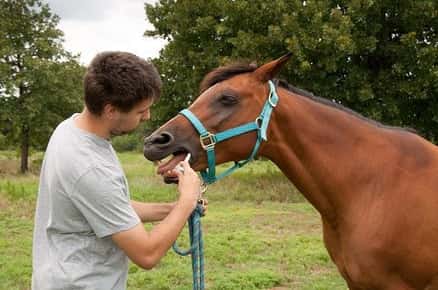
If you are a long time horse owner, you may be familiar with traditional parasite control strategies. Traditionally, the most common parasite control approach called for horse owners to deworm their horse year round every six to eight weeks, rotating products. Alternatively, horse owners also could opt to provide a daily de-wormer in their horse’s feed and then deworm twice a year using a paste product.
Today, neither of these traditional deworming methods is generally recommended for horses. Years of constant deworming have led to a growing resistance to deworming products. With no new deworming products currently coming to market, a strategic approach to deworming is essential to protect your horses and ensure you are not wasting money on ineffective equine care.
Strategic deworming programs are based off fecal egg counts, age of the horse, time of year, and estimated exposure level based on geographic location. In the summer months, for example, high daytime temperatures – greater than 85 degrees Fahrenheit for five consecutive days – will kill parasite eggs in a pasture. As a result, the risk for infection from parasites is lower in the summer and horses may require less deworming.
In general, the best approach is to work closely with your veterinarian and base any strategic deworming program off baseline fecal egg counts, while taking into account general environmental factors. Without baseline fecal egg counts for your horses, it is difficult to make an informed decision about deworming. When used appropriately, fecal egg counts can be a valuable tool to determining a strategic deworming protocol. These tests should be administered before deworming and then 10 to 14 days after administering a dewormer to determine if the drug is still effective at treating parasites in your equine population. Effective deworming drugs should reduce the test’s egg count measure by at least 90 percent when compared with the pre-test sample.
It’s important to keep in mind, however, that some parasites like tapeworms only intermittently shed their eggs. Consequently, it is possible that a low or negative fecal count could actually be a false negative, and that there is still some parasite in the environment. Any deworming program based off fecal counts should continue to rely on an annual scheduled deworming with a product containing the deworming agent Praziquantal.
Finally, keep in mind that when it comes to de-worming, more is not always better. It is possible to overdo it, which is why a strategic approach is so important.
Source:
The Horse, “Strategic Deworming Q&A.” 2008.
